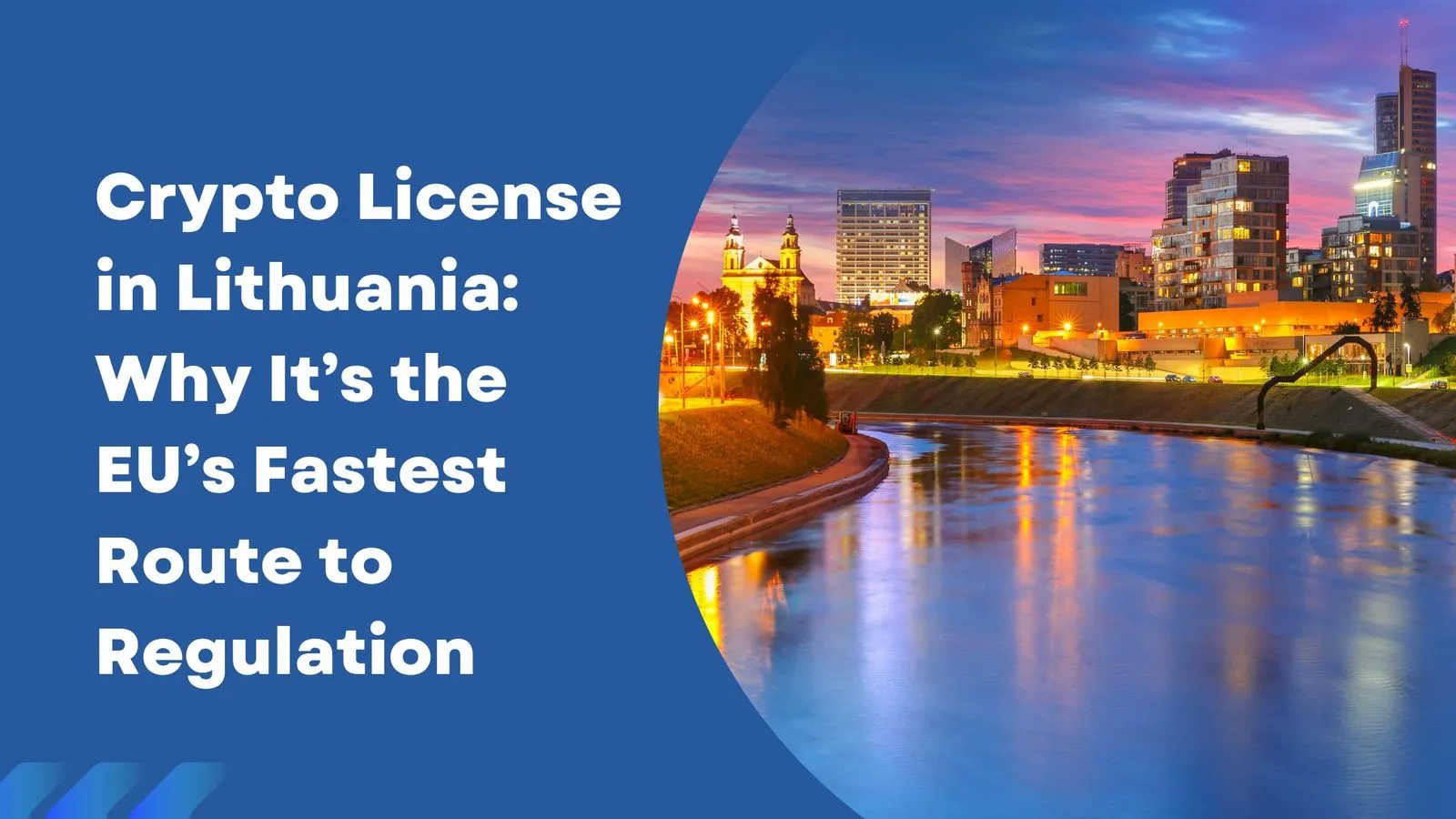
The European Union has become a hub for cryptocurrency innovation and regulatory frameworks. Among all EU member states, Lithuania has rapidly emerged as the most attractive destination for companies seeking a crypto license. Favorable legislation, business-friendly policies, and a streamlined licensing process make Lithuania the EU’s fastest route to regulation. This article dives deep into why Lithuania is leading the race, what it offers to crypto entrepreneurs, and how businesses can benefit from obtaining a Lithuanian crypto license.
Lithuania’s government has positioned itself as a frontrunner in fintech and blockchain regulation. By offering clear guidelines and establishing regulatory certainty early on, the country has managed to attract a large number of crypto firms from across Europe and beyond.
The Bank of Lithuania, the nation’s financial supervisory authority, plays a key role in shaping policies that balance innovation with investor protection. Unlike other EU countries that impose lengthy approval processes, Lithuania provides a smoother entry point for businesses without compromising regulatory standards.
✅ Key Advantages:
Lithuania offers two main types of licenses for crypto-related businesses:
The speed of obtaining a crypto license is one of Lithuania’s biggest selling points. In many EU countries, it can take 6–12 months (or longer) to process applications. In contrast, Lithuania often approves licenses within 30–60 days, provided that applicants meet the compliance requirements.
Factors contributing to Lithuania’s efficiency:
This rapid turnaround enables businesses to launch operations quickly and establish themselves in the EU market without long delays.
Although the process is faster, Lithuania maintains strict compliance measures in line with EU directives, including the 5th Anti-Money Laundering Directive (AMLD5).
Key requirements include:
These requirements ensure that licensed companies operate with transparency, financial integrity, and customer protection in mind.
Securing a Lithuanian crypto license opens up significant opportunities across the European market:
Lithuania’s growing reputation as a crypto hub also means companies benefit from a vibrant fintech ecosystem, networking opportunities, and government-backed innovation programs.
To understand Lithuania’s advantages, it’s helpful to compare it with other European countries offering crypto licenses.
Clearly, Lithuania offers a faster, more cost-effective, and business-friendly path compared to its EU counterparts.
Lithuania has positioned itself as the EU’s go-to destination for crypto licensing by combining speed, efficiency, and regulatory clarity. For startups and established businesses aiming to enter the European market, Lithuania represents the fastest route to compliance and credibility. With its crypto-friendly ecosystem, streamlined application process, and strong support from financial authorities, the country continues to attract global attention as Europe’s leading crypto hub.
Final Thought: Obtaining a Lithuanian crypto license is not just about meeting regulatory requirements; it’s about unlocking opportunities for sustainable growth, innovation, and international expansion in one of the world’s most dynamic markets.
Start your crypto venture in Lithuania today.
Join our Telegram Channel
1. How long does it take to obtain a crypto license in Lithuania?
Typically, the process takes between 30 to 60 days, depending on how quickly all documentation and compliance requirements are met.
2. Do I need to be a resident of Lithuania to apply for a crypto license?
No, foreign entrepreneurs can apply. However, the company must be registered in Lithuania and maintain a local representative or AML officer.
3. What is the minimum capital required for a Lithuanian crypto license?
For certain activities, such as custodial or exchange services, companies must have a minimum share capital of €125,000.
4. Can a Lithuanian crypto license be used to operate across the EU?
Yes. Once licensed, companies benefit from EU passporting rights, allowing them to operate across all EU member states.
5. Is Lithuania tightening its crypto regulations like Estonia or Malta?
While Lithuania continues to update its regulations for alignment with EU standards, it remains one of the most business-friendly and efficient jurisdictions for crypto licensing.
6. What are the ongoing compliance obligations?
Licensed firms must maintain AML/KYC protocols, report suspicious transactions, and keep accurate financial records to comply with EU and Lithuanian law.